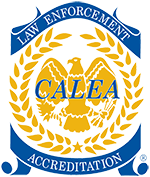Alarm System Registration
Excessive false alarms unduly burden the Providence Police Department’s limited law enforcement resources. Therefore, the purpose of this article is to establish reasonable expectations of alarm users and to ensure that alarm users are held responsible for their use of alarm systems.
Chapter 16, Article IV. Sec. 16-122 – Definitions
Unless the context clearly indicates otherwise, the words and phrases used in this chapter shall have the following meanings:
Alarm administrator means a person or persons designated by the city to administer, control and review false alarm reduction efforts and administer the provisions of this article.
Alarm company means a person subject to the licensing requirements, and/or a company engaged in selling, leasing, installing, servicing or monitoring alarm systems.
Alarm signal means a detectable signal; audible or visual, generated by an alarm system, to which law enforcement is requested to respond.
Alarm system means any single device or assembly of equipment designed to signal the occurrence of an illegal or unauthorized entry or other illegal activity requiring immediate attention and to which law enforcement is requested to respond, but does not include motor vehicle or boat alarms, fire alarms, domestic violence alarms, or alarms designed to elicit a medical response.
Alarm user means any person, corporation, partnership, proprietorship, governmental or educational entity or any other entity owning, leasing or operating an alarm system, or on whose premises an alarm system is maintained for the protection of such premises.
Alarm user awareness class means a class conducted for the purpose of educating alarm users about the responsible use, operation, and maintenance of alarm systems and the problems created by false alarms.
Automatic dial protection device means an automatic dialing device or an automatic telephone dialing alarm system and shall include any system which, upon being activated, automatically initiates to the Providence Police Department a recorded message or code signal indicating a need for law enforcement response.
Cancellation means the process where response is terminated when the alarm company (designated by the alarm user) notifies the Providence Police Department that there is not an existing situation at the alarm site requiring police response after an alarm dispatch request. If cancellation occurs prior to police arriving at the scene, this is not a false alarm for the purpose of a civil penalty, and no penalty will be assessed.
City means the City of Providence or its agent.
False alarm means the activation of an alarm system through mechanical or electronic failure, malfunction, improper installation, or the negligence of the alarm user, his/her employees or agents, and signals activated to summon law enforcement personnel unless law enforcement response was cancelled by the user’s alarm company before law enforcement personnel arrive at the alarm location. An alarm is false within the meaning of this article when, upon inspection by the Providence Police Department, evidence indicates that no unauthorized entry, robbery, or other such crime was committed or attempted in or on the premises which would have activated a properly functioning alarm system. Notwithstanding the foregoing, a false alarm shall not include an alarm which can reasonably be determined to have been caused or activated by unusually violent conditions of nature nor does it include other extraordinary circumstances not reasonably subject to control by the alarm user.
Local alarm means an alarm system that emits a signal at an alarm site that is audible or visible from the exterior of a structure and is not monitored by a remote monitoring facility, whether installed by an alarm company or user.
Permit year means a twelve-month period beginning on the day and month on which an alarm permit is issued.
Runaway alarm means an alarm system that produces repeated alarm signals that do not appear to be caused by separate human action. The Providence Police Department may in its discretion discontinue police responses to alarm signals from what appears to be a runaway alarm.
SIA Control Panel Standard CP-01 means the American National Standard Institute (ANSI) approved security industry association (SIA) CP-01 control panel standard, as may be updated from time to time, that details recommended design features for security system control panels and their associated arming and disarming devices to reduce false alarms. Control panels built and tested to this standard by a nationally recognized testing organization, will be marked to state: “Design evaluated in accordance with SIA CP-01 control panel standard features for false alarm reduction”.
Verify means an attempt by the monitoring company, or its representative, to contact the alarm site and/or alarm user by telephone and/or other electronic means, whether or not actual contact with a person is made, to attempt to determine whether an alarm signal is valid before requesting law enforcement dispatch, in an attempt to avoid an unnecessary alarm dispatch request. For the purpose of this ordinance, telephone verification shall require, as a minimum that a second call be made to a different number if the first attempt fails to reach an alarm user who can properly identify themselves to attempt to determine whether an alarm signal is valid before requesting law enforcement dispatch.
Chapter 16, Article IV. Sec. 16-124 – Duties of the alarm user
(a) Maintain the premises and the alarm system in a method that will reduce or eliminate false alarms; and
(b)Provide the alarm company the permit number, (the number must be provided to the communications center by the alarm company to facilitate dispatch).
(c) Must respond or cause a representative to respond to the alarm system’s location within a reasonable amount of time when notified by the Providence Police Department.
(d) Not manually activate an alarm for any reason other than an occurrence of an event that the alarm system was intended to report.
(e) An alarm user must obtain a new permit and pay any associated fees if there is a change in address or ownership of a business or residence.
Chapter 16, Article IV. Sec. 16-125 – Duties of alarm company
(a) Any person engaged in the alarm business in the city, shall comply with the following:
(1) Obtain and maintain the required state and/or city license(s).
(2) Provide name, address, and telephone number of the user or a designee, who can be called in an emergency, twenty-four (24) hours a day; and contact a key holder or other emergency contact who will respond immediately.
(3) Provide the most current contact information for the alarm user.
(b) Ninety (90) days after enactment of this article the alarm installation companies shall, on all new and up-graded installations, use only alarm control panel(s) which meet SIA control panel standard CP-01.
(c) Prior to activation of the alarm system, the alarm company must provide instructions explaining the proper operation of the alarm system to the alarm user.
(d) Provide written information of how to obtain service from the alarm company for the alarm system.
(e) An alarm company performing monitoring services shall:
(1) Attempt to verify, by calling the alarm site and/or alarm user by telephone, to determine whether an alarm signal is valid before requesting dispatch. Telephone verification shall require, as a minimum that a second call be made to a different number, if the first attempt fails to reach an alarm user who can properly identify themselves to attempt to determine whether an alarm signal is valid, except in the case of a panic or robbery-in-progress alarm, or in cases where a crime-in-progress has been verified by video and/or audible means.
(2) Provide alarm user registration number, when available, to the communications center to facilitate dispatch and/or cancellations.
(3) Communicate any available information about the location of the alarm.
(4) Communicate a cancellation to the law enforcement communications center as soon as possible following a determination that response is unnecessary.
Chapter 16, Article IV. Sec. 16-126 – Prohibited acts
(a) It shall be unlawful to activate an alarm system for the purpose of summoning law enforcement when no burglary, robbery, or other crime dangerous to life or property is being committed or attempted on the premises, or otherwise to cause a false alarm.
(b) It shall be unlawful to install, maintain, or use an audible alarm system which can sound continually for more than fifteen (15) minutes.
(c) It shall be unlawful to install, maintain, or use an automatic dial protection device that reports, or causes to be reported, any recorded message to the Providence Police Department.
Chapter 16, Article IV. Sec. 16-127 – Enforcement
(a) Excessive false alarms/failure to register.
It is hereby found and determined that three (3) or more false alarms within a permit year is excessive, constitutes a public nuisance, and shall be unlawful. Civil penalties for false alarms within a permit year may be assessed against an alarm user as follows:
- Third false alarm – $100.00
- Fourth false alarm – $200.00
- Fifth false alarm – $400.00
- Fifth false alarm – $400.00
- Sixth and over false alarms – $500.00
- Failure to register – $100.00
(b) Other civil penalty(ies).
Violations will be enforced through the assessment of civil penalty(ies) in the amount of one hundred dollars ($100.00) per violation.
(c) Payment of civil penalty(ies).
Civil penalty(ies) shall be paid within (30) days from the date of the invoice.
(d) Discontinuance of law enforcement response.
The failure of an alarm user to make payment of any civil penalty(ies) assessed under this article within thirty (30) days from the date of the invoice shall result in discontinuance of law enforcement response to alarm signals that may occur at the premises described in the alarm user’s permit until payment is received.
(e) Civil non-criminal violation.
A violation of any of the provisions of this ordinance shall be a civil violation and shall not constitute a misdemeanor or infraction.
Chapter 16, Article IV. Sec. 16-128 – Appeals
(a) Appeals process
Assessments of civil penalty(ies) and other enforcement decisions made under this ordinance may be appealed by filing a written notice of appeal with the Providence Police Department within ten (10) days after the date of notification of the assessment of civil penalty(ies) or other enforcement decision. The failure to give notice of appeal within this time period shall constitute a waiver of the right to contest the assessment of penalty(ies) or other enforcement decision. Appeals shall be heard through an administrative process established by the city. The hearing officer’s decision is subject to review in the district court by proceedings in the nature of certiorari.
(b) Appeal standard
The hearing officer shall review an appeal from the assessment of civil penalty(ies) or other enforcement decisions using a preponderance of the evidence standard. Notwithstanding a determination that the preponderance of the evidence supports the assessment of civil penalty(ies) or other enforcement decision, the hearing officer shall have the discretion to dismiss or reduce civil penalty(ies) or reverse any other enforcement decision where warranted.
Chapter 16, Article IV. Sec. 16-129 – Confidentiality
In the interest of public safety, all information contained in and gathered through the alarm registration applications, no response records, applications for appeals and any other alarm records shall be held in confidence by all employees and/or representatives of the city.
Contact
Anne Marie Keohane
Alarm Administrator
(401) 680-5582
akeohane@providenceri.gov


